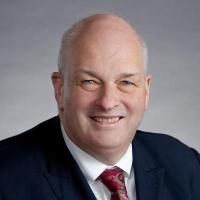Does diabetes affect outcome or reoperation rate after lumbar decompression or arthrodesis? A matched analysis of the Quality Outcomes Database data set.
Date
2023-12
Journal Title
Journal ISSN
Volume Title
Repository Usage Stats
views
downloads
Citation Stats
Attention Stats
Abstract
Objective
Diabetes mellitus (DM) is a known risk factor for postsurgical and systemic complications after lumbar spinal surgery. Smaller studies have also demonstrated diminished improvements in patient-reported outcomes (PROs), with increased reoperation and readmission rates after lumbar surgery in patients with DM. The authors aimed to examine longer-term PROs in patients with DM undergoing lumbar decompression and/or arthrodesis for degenerative pathology.Methods
The Quality Outcomes Database was queried for patients undergoing elective lumbar decompression and/or arthrodesis for degenerative pathology. Patients were grouped into DM and non-DM groups and optimally matched in a 1:1 ratio on 31 baseline variables, including the number of operated levels. Outcomes of interest were readmissions and reoperations at 30 and 90 days after surgery in addition to improvements in Oswestry Disability Index, back pain, and leg pain scores and quality-adjusted life-years at 90 days after surgery.Results
The matched decompression cohort comprised 7836 patients (3236 [41.3] females) with a mean age of 63.5 ± 12.6 years, and the matched arthrodesis cohort comprised 7336 patients (3907 [53.3%] females) with a mean age of 64.8 ± 10.3 years. In patients undergoing lumbar decompression, no significant differences in nonroutine discharge, length of stay (LOS), readmissions, reoperations, and PROs were observed. In patients undergoing lumbar arthrodesis, nonroutine discharge (15.7% vs 13.4%, p < 0.01), LOS (3.2 ± 2.0 vs 3.0 ± 3.5 days, p < 0.01), 30-day (6.5% vs 4.4%, p < 0.01) and 90-day (9.1% vs 7.0%, p < 0.01) readmission rates, and the 90-day reoperation rate (4.3% vs 3.2%, p = 0.01) were all significantly higher in the DM group. For DM patients undergoing lumbar arthrodesis, subgroup analyses demonstrated a significantly higher risk of poor surgical outcomes with the open approach.Conclusions
Patients with and without DM undergoing lumbar spinal decompression alone have comparable readmission and reoperation rates, while those undergoing arthrodesis procedures have a higher risk of poor surgical outcomes up to 90 days after surgery. Surgeons should target optimal DM control preoperatively, particularly for patients undergoing elective lumbar arthrodesis.Type
Department
Description
Provenance
Subjects
Citation
Permalink
Published Version (Please cite this version)
Publication Info
Mooney, James, Karim Rizwan Nathani, Daniel Zeitouni, Giorgos D Michalopoulos, Michael Y Wang, Domagoj Coric, Andrew K Chan, Daniel C Lu, et al. (2023). Does diabetes affect outcome or reoperation rate after lumbar decompression or arthrodesis? A matched analysis of the Quality Outcomes Database data set. Journal of neurosurgery. Spine. pp. 1–12. 10.3171/2023.9.spine23522 Retrieved from https://hdl.handle.net/10161/29551.
This is constructed from limited available data and may be imprecise. To cite this article, please review & use the official citation provided by the journal.
Collections
Scholars@Duke

Oren N Gottfried
I specialize in the surgical management of all complex cervical, thoracic, lumbar, or sacral spinal diseases by using minimally invasive as well as standard approaches for arthritis or degenerative disease, deformity, tumors, and trauma. I have a special interest in the treatment of thoracolumbar deformities, occipital-cervical problems, and in helping patients with complex spinal issues from previously unsuccessful surgery or recurrent disease.I listen to my patients to understand their symptoms and experiences so I can provide them with the information and education they need to manage their disease. I make sure my patients understand their treatment options, and what will work best for their individual condition. I treat all my patients with care and concern – just as I would treat my family. I am available to address my patients' concerns before and after surgery. I aim to improve surgical outcomes for my patients and care of all spine patients with active research evaluating clinical and radiological results after spine surgery with multiple prospective databases. I am particularly interested in prevention of spinal deformity, infections, complications, and recurrent spinal disease. Also, I study whether patient specific variables including pelvic/sacral anatomy and sagittal spinal balance predict complications from spine surgery.

Christopher Ignatius Shaffrey
I have more than 25 years of experience treating patients of all ages with spinal disorders. I have had an interest in the management of spinal disorders since starting my medical education. I performed residencies in both orthopaedic surgery and neurosurgery to gain a comprehensive understanding of the entire range of spinal disorders. My goal has been to find innovative ways to manage the range of spinal conditions, straightforward to complex. I have a focus on managing patients with complex spinal disorders. My patient evaluation and management philosophy is to provide engaged, compassionate care that focuses on providing the simplest and least aggressive treatment option for a particular condition. In many cases, non-operative treatment options exist to improve a patient’s symptoms. I have been actively engaged in clinical research to find the best ways to manage spinal disorders in order to achieve better results with fewer complications.

Khoi Duc Than
I chose to pursue neurosurgery as a career because of my fascination with the human nervous system. In medical school, I developed a keen interest in the diseases that afflict the brain and spine and gravitated towards the only field where I could help treat these diseases with my own hands. I focus on disorders of the spine where my first goal is to help patients avoid surgery if at all possible. If surgery is needed, I treat patients using the most advanced minimally invasive techniques available in order to minimize pain, blood loss, and hospital stay, while maximizing recovery, neurologic function, and quality of life. In my free time, I enjoy spending time with my family and friends. I am an avid sports fan and love to eat. I try to stay physically fit by going to the gym and playing ice hockey.
Unless otherwise indicated, scholarly articles published by Duke faculty members are made available here with a CC-BY-NC (Creative Commons Attribution Non-Commercial) license, as enabled by the Duke Open Access Policy. If you wish to use the materials in ways not already permitted under CC-BY-NC, please consult the copyright owner. Other materials are made available here through the author’s grant of a non-exclusive license to make their work openly accessible.
